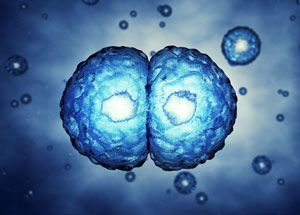
Effects of Turmeric Compounds on Growth Factors and Receptors Involved in Cancer
| GROWTH FACTORS AND RECEPTORS IN CANCER | |||
|---|---|---|---|
| HOW DO THEY CONTRIBUTE TO CANCER? AND HOW CAN TURMERIC COMPOUNDS HELP? |
|||
|
Certain proteins and cell receptors promote progression through the cell cycle, which is how cells replicate and proliferate. Their role is different than the proteins that operate the cell cycle. (vi.12, 26, 39, 45, 113-114) Aptly called growth factors and growth factor receptors, abnormal expression of these proteins can enhance tumor growth. High levels of some growth factors and receptors (such as HER2) are also associated with progression of cancer and metastasis . (vi.12, 26, 39, 45, 113-114) Growth Factors Help Feed Cancer Growth factors such as VEGF and bFGF also play a vital role in the development of new blood vessels This is a process referred to as angiogenesis, and is necessary for a tumor's continued growth and spread. As such, these growth factors are sometimes called angiogenesis factors. (vi.7, 16, 89) Effects of Turmeric's Curcumin Compounds Blocking growth factors and receptors can suppress tumor growth and the spread of cancer. Studies show that the turmeric compound curcumin is a potent inhibitor of many of these growth factors and receptors. (vi.12, 26, 39, 45, 113) The strength of curcumin's effects may depend on the type of growth factor involved. For example, recent research indicates that curcumin is much less effective at inhibiting cancer cells that express insulin-like growth factors (IGF) than those that produce progastrin growth factors (PGF). On the other hand, curcumin is a particularly potent HER2 inhibitor. Higher levels of HER2 growth factor receptors are linked to advanced cancer. (vi.12, 26, 39, 45, 113-114) Other Active Turmeric Compounds Turmeric compounds (in addition to curcumin) that help regulate growth factors involved in cancer include: |
|||
| SPECIFIC EFFECTS OF TURMERIC COMPOUNDS | |||
| ↓ AR | ↓ FGF-2 | ↓ HER3 | ↓ PGF |
| ↓ b-FGF | ↓ HARP | ↓ HGF & HGFR | ↓ uPA |
| ↓ EGF and their receptors (EGFR) |
↓ HER2 | ↓ IGF | ↓ VEGF |





